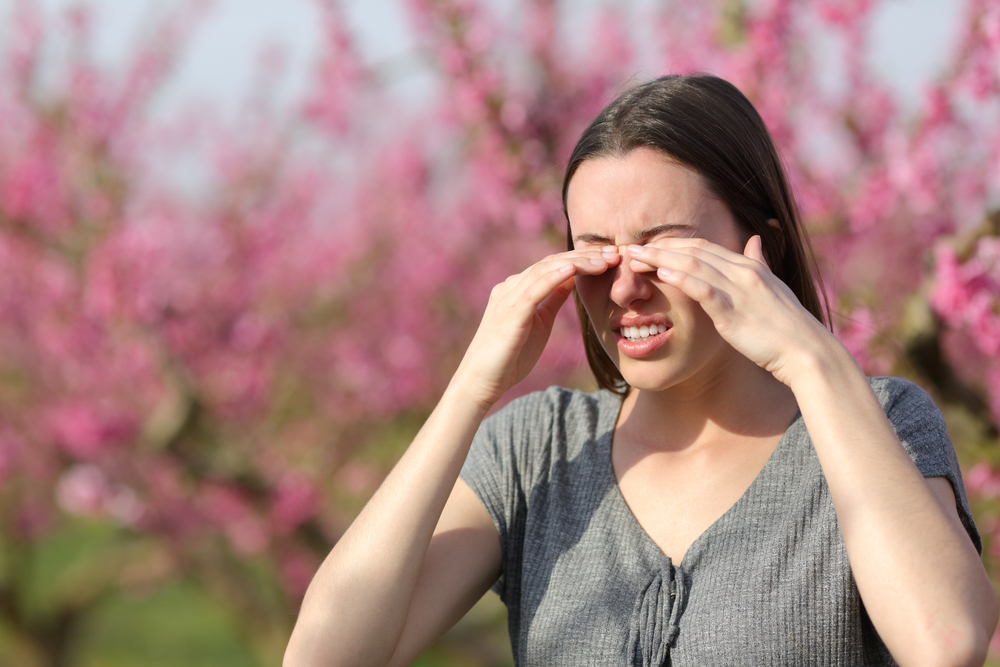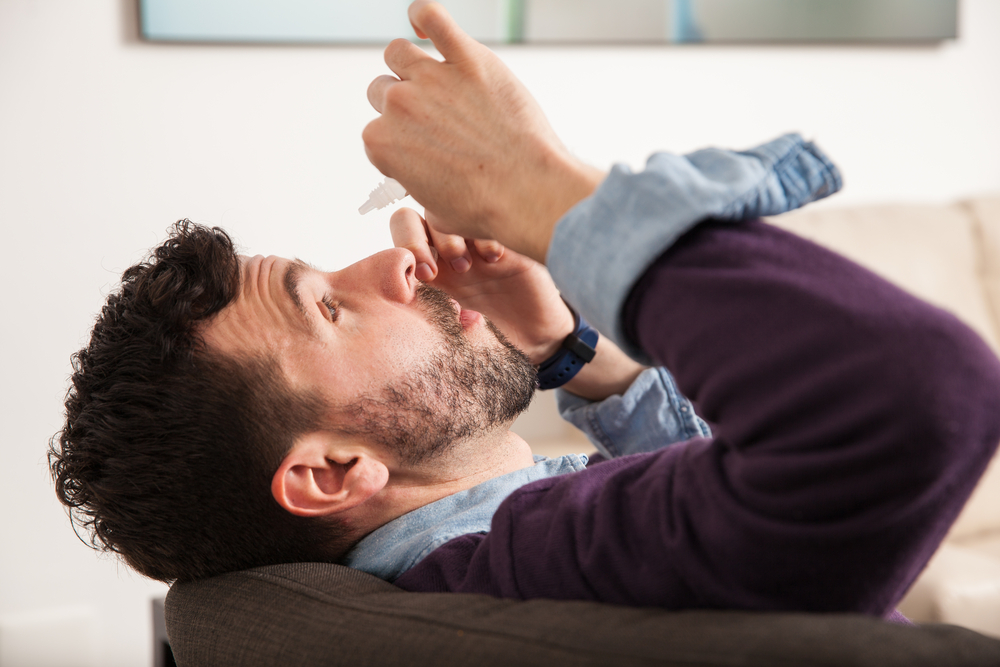It’s allergy season, and for the many people who suffer from a pollen allergy, that means itchy, watery, irritated eyes. If you have this prevalent allergy, allergy season means being uncomfortable for many months.
But you don’t have to resign yourself to feeling miserable every spring. There are things you can do to take control of dry eyes. Keep reading to learn how to get the best of allergy season with these 7 tips!
1. Wash Your Hands
Pollen gets everywhere. It can even get inside when there’s a lot of it in the air.
You may not notice if there’s pollen residue on your fingers, but it’s likely there if it’s allergy season. During allergy season, make sure to wash your hands more frequently.
You may be touching your face throughout the day without even realizing it. If you have traces of pollen on your fingers, it can easily find its way into your eyes.
A good way to avoid this is by making sure your hands are clean. Another good way to keep pollen out of your eyes is to not rub them.
2. Don’t Rub Your Eyes

Not rubbing your eyes may sound easy, but during allergy season, they may feel itchy, watery, or drier than usual. If you have eye allergies, you may notice your eyes feel itchier than usual.
You may want to rub your eyes to make them feel better, even if it only temporarily helps. However, rubbing your eyes will only increase your irritation.
If you have any traces of pollen on your fingers, you’ll then get that pollen in your eyes, which will increase your irritation and continue the cycle of unbearable discomfort. Your eyes get itchier and irritated because you’re rubbing them.
Not rubbing your eyes will significantly help reduce feelings of irritation, especially during allergy season.
3. Use a Warm Compress or Eyelid Wipes
One terrific way to get some immediate relief from eye allergies is to use a warm compress. Place a washcloth or hand towel on top of your eyes while they are closed.
A warm compress will help alleviate some symptoms and keep your eyes clean. The heat from the compress can also help reduce any irritation you may feel, temporarily quelling the need to rub your eyes.
You can also buy over-the-counter eyelid wipes or scrubs. These are used to clean your eyelids similarly to a wet compress, but they are often more effective at killing bacteria and histamines. Keeping your eyelids clean can remove any bacteria causing irritation or discomfort, especially if you have gotten pollen in your eyes and don’t know it.
4. Try Antihistamines
If you have allergies, the obvious treatment is to try taking over-the-counter antihistamines. But you may have given up on using them if traditional antihistamines make you drowsy or simply aren’t strong enough.
However, you should try antihistamines again. Several widely available non-drowsy allergy medications are available over the counter.
If you find over-the-counter medications insufficient, you may get more relief from prescription allergy medication. Talk to your doctor about your allergies to see if prescription allergy medications are suitable for you.
5. Address Your Dry Eye Symptoms

Dry eyes and dry eye syndrome are common and sometimes mistaken for allergies. When your eyes are too dry, you may experience some itchiness.
One of the primary symptoms associated with dry eye syndrome is burning. However, the symptoms of dry eye syndrome can be exacerbated if you also have eye allergies.
It’s not uncommon to have both eye allergies and dry eyes. These conditions feed into each other, making symptoms worse.
Luckily, dry eyes are treatable. They can often be treated with over-the-counter eye drops, nutritional supplements, and simple lifestyle changes.
But if you have dry eye syndrome, professional treatment may be necessary to get the relief you need from your symptoms. We offer prescription medication and non-invasive in-office therapies at Williamson Eye Center to treat dry eye syndrome.
These treatments can reduce dry eye symptoms in the long term, making allergy season much more comfortable.
6. Skip the Contact Lenses
Contact lenses can make eye allergy symptoms much worse. Pollen can stick to the lenses.
You’re also much more likely to get pollen in your contacts since you need to touch your eyes throughout the day while wearing them. Even if you’re diligent about not rubbing your eyes and washing your hands, it can be hard not to touch your eyes when you have contact lenses and something gets in them.
Skipping contact lenses and wearing glasses during allergy season can reduce allergy symptoms. But this may not seem like a great solution if you hate wearing glasses.
Another solution would be to no longer rely on contact lenses. Instead, consider a vision correction procedure so you can see clearly without visual aids and improve your dry eyes.
7. Consider a Vision Correction Procedure

If your vision is corrected with a procedure like LASIK, you can see without contact lenses or glasses. That means you won’t have to wear visual aids during allergy season, so you won’t have to sacrifice one comfort for another.
If you have severe eye allergies and don’t want to give up the ease that comes with contact lenses, LASIK may be perfect for you. However, if you have an eye condition like dry eye syndrome, you’d have to have it under control and managed before you could undergo a procedure like LASIK.
Allergy season doesn’t have to get the best of you. Are you ready to have a better allergy season? Request your appointment at Williamson Eye Center in Baton Rouge, LA, to learn more! It’s time to find a solution!



